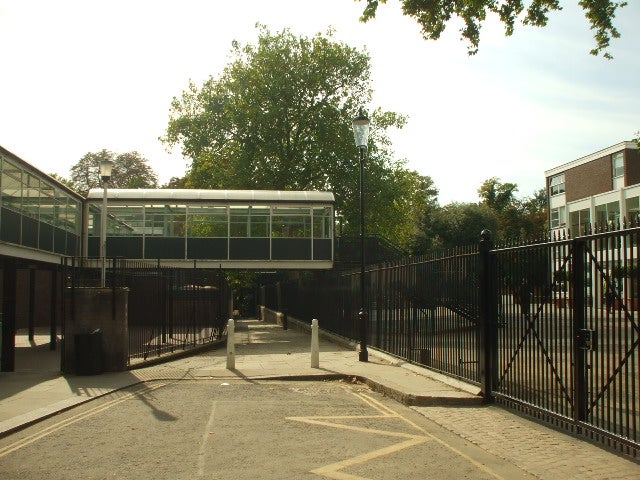I went to the UK's 'School of Jihadis', and I can't believe how it has been treated by the press
Contrary to opinion, we didn’t have bomb-making classes at Holland Park Comprehensive

Your support helps us to tell the story
From reproductive rights to climate change to Big Tech, The Independent is on the ground when the story is developing. Whether it's investigating the financials of Elon Musk's pro-Trump PAC or producing our latest documentary, 'The A Word', which shines a light on the American women fighting for reproductive rights, we know how important it is to parse out the facts from the messaging.
At such a critical moment in US history, we need reporters on the ground. Your donation allows us to keep sending journalists to speak to both sides of the story.
The Independent is trusted by Americans across the entire political spectrum. And unlike many other quality news outlets, we choose not to lock Americans out of our reporting and analysis with paywalls. We believe quality journalism should be available to everyone, paid for by those who can afford it.
Your support makes all the difference.As a former pupil of Holland Park School, which was a comprehensive in west London, I have got used to the school making the headlines. Has any state school in the country ever been the focus of so much controversy and so much misinformation? The news that six suspected “jihadists” had attended the school has given rise to the latest round of vilification, and it’s time to put the record straight.
I was an HPS pupil from 1998 to 2005, and my year group included Nawal Msaad and Amal El Wahabi, two women who were tried this year at the Old Bailey over charges of funding terrorism. In January, Msaad was caught with £16,000 at Heathrow, which El Wahabi had given her to take to Turkey. El Wahabi was found guilty and Msaad was acquitted.
Nassim Terreri, who was also in my year group, was one of three ex-Holland Parkers killed in Syria in 2012 after he travelled there reportedly as a freelance journalist to document the civil war. Syrian officials have labelled him a foreign terrorist wanting to fight against the regime, which his family has denied.
Friends at a HPS 10-year reunion last year remembered Nassim as a genuinely likeable person who had made no enemies among us. But the media has focused on his style of dress and mannerisms, his Algerian ethnicity, schooling, socio-economic background, and family – all of it on the basis of the Syrian government’s questionable claims.
These types of high-profile cases have been waved about by the right-wing press as “examples” of the “tantalising connection” – as the Daily Mail had written – between HPS and alleged terrorism. But why should an entire school be tarred by such associations?
Jihadis travelling to the Middle East has been a recent worldwide trend. But HPS itself didn’t foster such ideologies. It didn’t hold bomb-making classes in Design and Technology or PE lessons in lobbing and dodging grenades. Rather, the best of our teachers sought to stretch their stubborn pupils’ minds, under strained working conditions, beyond what the government dictated we should know merely to pass exams.
Dubbed the “Eton of Comprehensives”, the school – now since demolished, refurbished and under new management – mainly served the wealthy parts of Kensington and the lesser privileged, but now gentrified, areas of Ladbroke Grove and Shepherd’s Bush. It accommodated pupils from a rich mix of cultures, including refugees and diplomats’ children. We learned over those formative years that there are more things that unite us than divide us.
Nelson Mandela had visited in 2000 to hold a whole-school assembly, and all 1,500 of us sat silent and spell-bound by his speech that stressed the importance of education. Lessons in hard knocks also gave us the resilience and street-smarts to navigate the world that we were later thrown into, so we had more than a few playground battle scars and qualifications to show for our time.
Notable HPS students include a number of entertainers, artists, and writers, including journalist John-Paul Flintoff – author of HPS memoir Comp – and Hilary and Melissa Benn, the latter of which had campaigned on behalf of comprehensive schools with their Labour parents Caroline and Tony.
HPS defied conventional expectations of what a school should be. Some people would even consider the then-no uniform policy and general culture to be extremely, or worringly, lax. Most importantly, we were able to question everything and think independently, and since when was this progressiveness a recipe for jihad?
Join our commenting forum
Join thought-provoking conversations, follow other Independent readers and see their replies
Comments